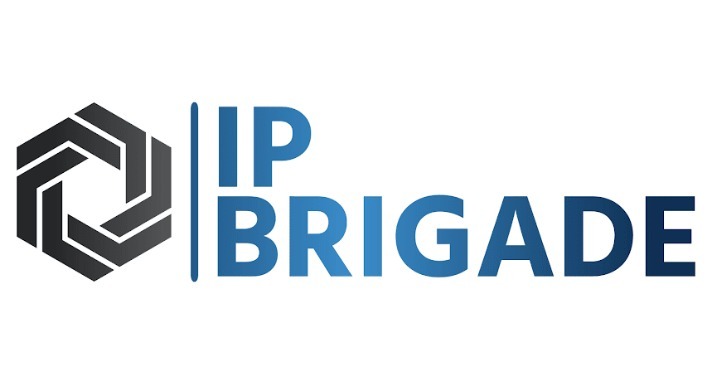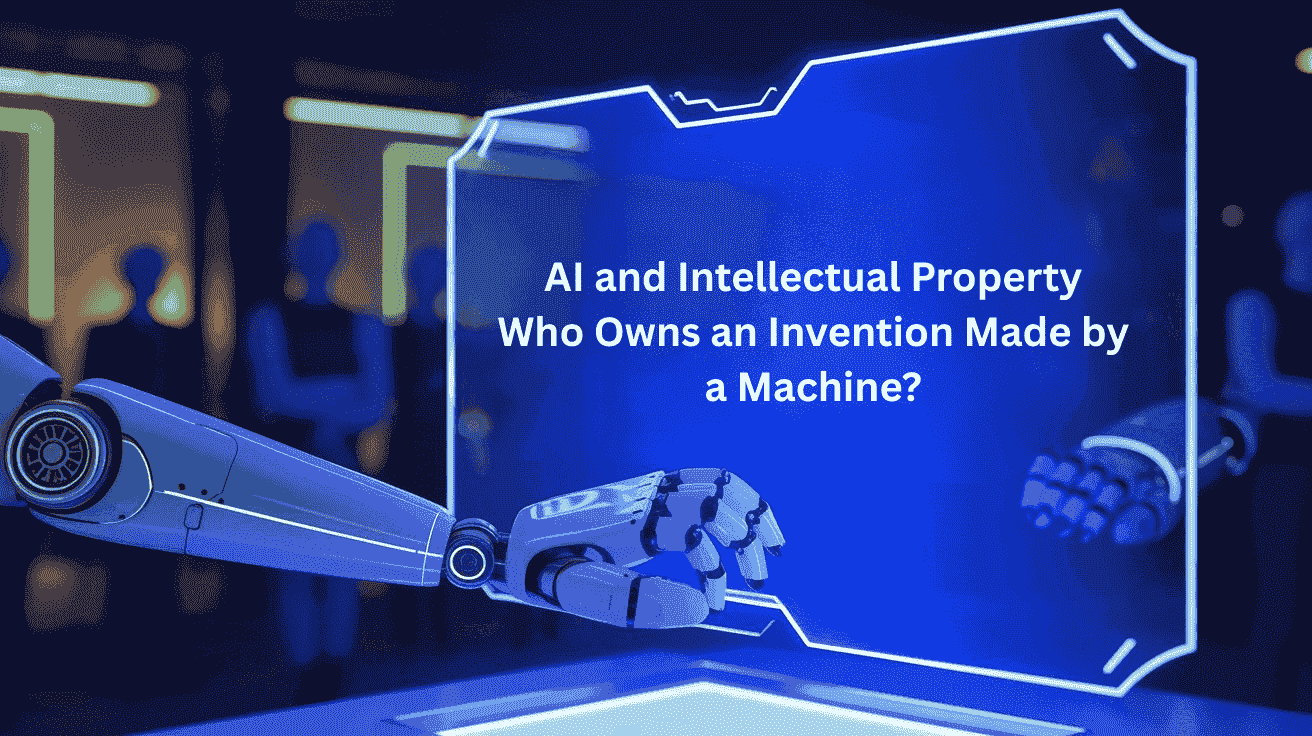Artificial Intelligence (AI) is transforming the world of innovation. Once viewed merely as a tool, AI is now becoming an active participant in the creation of new inventions across industries—from drug discovery and material design to robotics, automotive, and advanced computing. As this technological revolution accelerates, a pressing legal and ethical question has emerged: Who owns an invention created by a machine?
This question sits at the heart of the evolving relationship between AI and Intellectual Property. For businesses investing heavily in AI-driven research and development, understanding how current laws define inventorship, ownership, and protection of AI-assisted creations is crucial.
The Legal Landscape: Humans, Not Machines
At present, patent systems around the world recognize humans as inventors, not machines. Despite the increasing sophistication of AI systems, the legal framework governing AI and Intellectual Property remains rooted in the idea that only “natural persons” can hold inventorship rights.
In the US, the famous case of Thaler v. Vidal reaffirmed that under the Patent Act, an inventor must be a human being. The court ruled that AI, such as the machine known as DABUS, cannot be listed as an inventor on a patent application.
The European Patent Office (EPO) and the United Kingdom Intellectual Property Office (UKIPO) have taken a similar stance, rejecting AI-named applications and emphasizing that patent law currently applies to humans only. The World Intellectual Property Organization (WIPO) has also been studying this issue through its AI and Intellectual Property policy discussions, aiming to bring global coherence to how AI-generated inventions should be treated.
This global consensus highlights one clear principle: AI can assist in invention, but it cannot yet be the inventor.
The Standard: “Significant Human Contribution”
The U.S. Patent and Trademark Office (USPTO) addressed the growing complexity of AI and Intellectual Property in its 2024 Inventorship Guidance for AI-Assisted Inventions. The guidance sets out an important test — the “significant human contribution” standard.
Under this standard:
A human must contribute meaningfully to the conception of the invention.
Activities such as curating data, designing or modifying AI algorithms, training models, or interpreting AI outputs can qualify as significant human involvement.
Simply owning the AI system, setting a goal, or pressing “run” is not enough to claim inventorship.
This approach strikes a balance between recognizing AI’s role and maintaining human accountability — ensuring that intellectual property rights remain enforceable and ethically grounded.
Why It Matters for Businesses
For organizations integrating AI into their R&D workflows, the intersection of AI and Intellectual Property carries major commercial implications. Incorrectly identifying inventors or misunderstanding the ownership structure can result in:
Loss of exclusivity: If a patent application names AI as an inventor, it risks outright rejection, potentially allowing others to copy or commercialize the innovation freely.
Reduced investor confidence: Investors seek clarity on ownership and enforceable rights. Ambiguity in inventorship can weaken funding prospects.
Legal disputes: Multiple parties — AI developers, data scientists, algorithm trainers, and end-users — may claim ownership over an AI-assisted invention.
Given that IP-intensive industries contribute over 40% of U.S. GDP, securing proper intellectual property protection for AI-driven innovations is not just a compliance matter — it’s a business imperative.
How to Protect AI-Assisted Inventions
Even though AI cannot be an inventor, companies can still protect AI-assisted innovations under existing IP laws by emphasizing human involvement and following best practices.
Here are five essential steps:
1. Document Human Contributions
Keep detailed logs of who did what. This includes dataset curation, algorithm adjustments, decision-making steps, and interpretation of AI-generated results. Such records serve as strong evidence of human inventorship.
2. Conduct Patentability Searches
Before filing, perform a Patentability Search to confirm novelty and non-obviousness. This ensures your innovation meets legal standards and avoids wasting resources on non-patentable ideas.
3. Ensure Compliance in Drawings and Specifications
High-quality drawings and detailed technical descriptions strengthen patent applications. USPTO-compliant Utility Patent Drawings and Design Patent Drawings help avoid rejections and improve clarity.
4. Respond Effectively to Office Actions
AI-related patents often face heightened scrutiny. Expertly crafted Office Action Responses can help overcome rejections and ensure that your claims accurately reflect human contributions.
5. Build a Broader IP Strategy
Some AI outcomes, such as generated artwork, datasets, or software outputs, may be better protected under copyright or trade secret law. A comprehensive AI and Intellectual Property strategy should identify the best mix of protections.
Beyond Patents: Other Forms of Protection
Not all AI-generated outputs are patentable. Depending on the type of creation, different IP rights may apply:
Copyrights: Protect AI-assisted works of authorship, such as music, text, or art, when a human demonstrates creative input or selection.
Trade Secrets: Safeguard proprietary AI models, training data, and algorithms that provide a business advantage.
Trademarks: Protect branding and identity elements associated with AI-driven products and services.
Understanding the interplay among these IP rights allows businesses to form a resilient strategy for managing AI and Intellectual Property assets.
The Future of AI Inventorship
The question of who invented AI is still up for debate. The Artificial Inventor Project, led by Dr. Stephen Thaler, continues to push for legal recognition of AI-generated inventions.
Meanwhile:
The USPTO and WIPO are conducting public consultations and policy studies.
Legislators and legal scholars are exploring whether the definition of “inventor” should evolve to include AI systems.
Some jurisdictions, like South Africa, have already granted patents naming AI as an inventor — sparking further international discussion.
In the long term, the relationship between AI and Intellectual Property may transform dramatically. As AI’s capabilities grow, the law may adapt to recognize shared or derivative inventorship, where both humans and machines contribute meaningfully to new creations.
Why Businesses Need Expert IP Guidance
Navigating the complex and evolving world of AI and Intellectual Property requires specialized expertise. Businesses must ensure that their patents, copyrights, and trade secrets are structured to reflect current legal standards — while also anticipating future developments.
Working with professionals experienced in AI-focused patent strategies, prior art analysis, and IP compliance helps avoid costly missteps. From drafting precise patent claims to managing cross-border filings, expert guidance ensures that your innovation stays protected in every jurisdiction.
Conclusion: The Human Element Still Rules
As of today, the rule is clear: AI cannot be an inventor—yet.
However, inventions created with AI assistance can absolutely be protected if a human makes a significant contribution to their conception or execution.
The relationship between AI and Intellectual Property is evolving rapidly, reshaping how we think about creativity, ownership, and innovation. Businesses that adapt early — by


